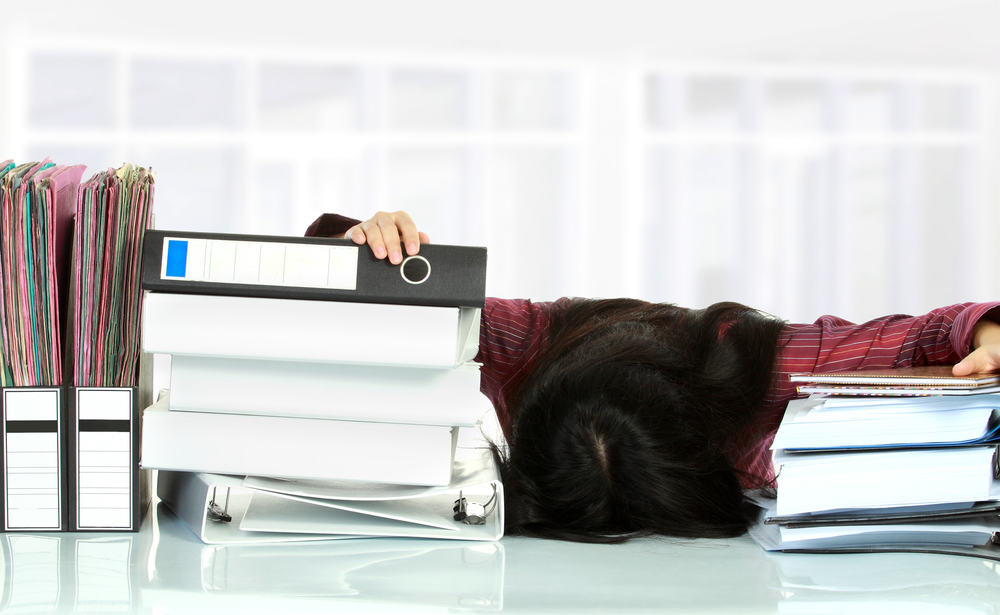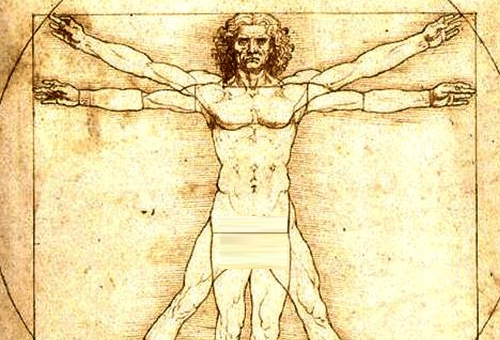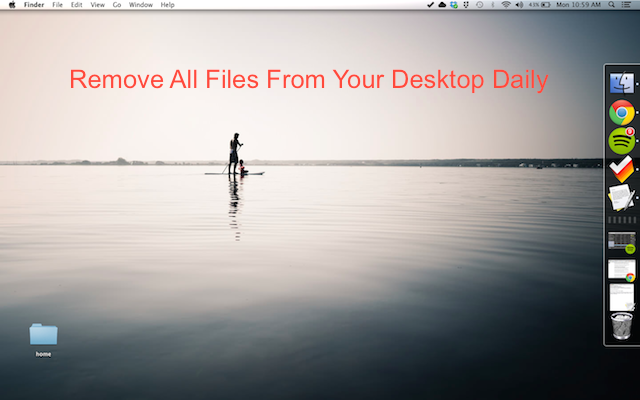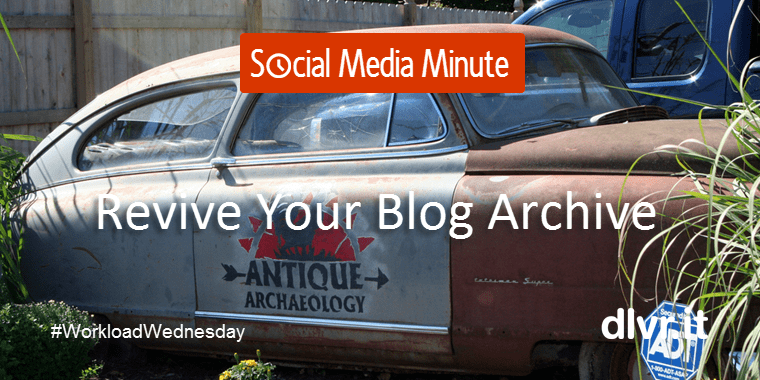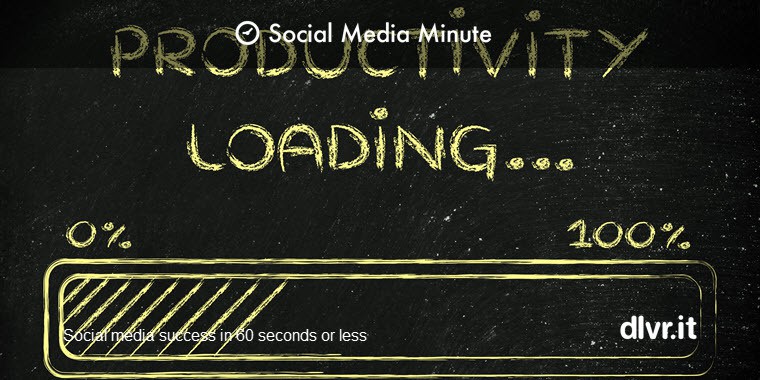
5 Practical Science-Based Tips to Make You More Productive
Do you find yourself rushing, multitasking or relying on smartphones and apps to get more done in your day? According to Josh Davis, Ph.D., we’re going about it the wrong way! Try these five brainy tips to boost your productivity.
___
Five Practical and Science-Based Tips to Make You More Productive
According to Manhattan neuroscientist Josh Davis, the answer is not to get more done faster, but rather to create the conditions for at least two awesome hours of peak productivity each day. Drawing on research, Davis explains that our minds operate according to complex factors that, when leveraged the right way, can make us truly effective.
Here are five deceptively simple strategies from Davis to create the conditions for incredible productivity and to restore sanity and balance to your life:
1 – Recognize your decision points
Maximize the moments in your day when you are between tasks, intentionally choosing what to tackle next.
→Once you start a task, you run largely on autopilot, which makes it hard to change course. Maximize the power of those moments in between tasks—that’s when you can choose what to take on next, and can, therefore, decide to tackle what matters most.
Problem: We operate on autopilot most of the day! Not a bad view from the cockpit. But, not very productive either.
Neuroscience reveals we are cognitive misers, looking for the easy route.
Solution: We need reminders to snap out of autopilot and focus on the important stuff.
That’s where decision points come in. They are transitional moments when we move from one task to another and can choose to attack the important or be carried along by the flotsam and jetsam of the day.
When do decision points occur?
- When you return from a meeting and pick up your “real work.”
- They may appear after the morning commute, an exercise break, or a walk to the coffee shop.
- Interruptions also offer us good decision points.
These decision points can lead to hours of productive work!
What do you do?
Recognize them. And instead of plunging back into work – angry you have been interrupted or that the barista was slow – keep in mind that moving ahead without thinking is wasteful while taking time to consider the next task carefully is actually productive, not wasteful.
- Eventually, you will learn not only to recognize the decision points but also to anticipate them.
- You will know that the end of every meeting affords you a decision point, and you can fritter away your time in the next period or choose two awesome hours of important work.
2 – Manage your mental energy
Schedule tasks based on your cognitive and emotional demands.
→Tasks that need a lot of self-control or focused attention can be depleting, and tasks that make you highly emotional can throw you off your game. Schedule tasks based on their processing demand and recovery time.
Problem: We don’t have the same energy all day long.
We suffer from decision fatigue:
- After making a lot of decisions, we get tired. And that doesn’t mean huge decisions, like where to allocate our advertising budget and when best to add new staff. A half-hour of e-mail is jammed with many decisions that can sap your energy.
- Before a major presentation, you might want to squeeze in some e-mail time while you wait for the big moment. “That’s like going for a long run before the big race,” he warns. After, when you must perform at your mental peak, you are actually tired. So at decision points, check your mental energy.
Solution: Schedule tasks based on their processing demand and recovery time.
Read: 8 Ways to Combat Decision Fatigue
3 – Stop fighting distractions
Learn how to direct your attention.
→Learn to direct your attention. Your attention systems are designed to wander and refresh, not to focus indefinitely. Trying to fight that is like trying to fight the ocean tides. Understanding how your brain works will help you get back on track quickly and effectively when you get distracted.
Problem: Your energy can be sapped by trying to fight distractions.
- How often are you distracted by a colleague talking on the phone?
- How about the distractions from hunger pains rumbling in your belly?
- What about the constant blinking or dinging task reminder on your computer?
Your instinct will be to ignore these distractions and stay the course, keeping on with the task at hand.
Solution: Consider distractions a good thing, a chance to let your mind wander.
Let your mind wander. It helps us come up with creative solutions or planning – we can sort out what needs to be done in the future. A lot of important stuff happens while we let our mind wander. You can come back to work in a few minutes, refreshed.
- Surfing websites likely won’t refresh you, though, because you aren’t just letting the mind float.
4 – Strengthen your mind–body connection
Breathe as well as feed and move your body for short-term benefit.
→Use your breath to calm your nervous system.
→Feed your body by eating in ways that set you up for success.
→Move your body.
There are not only short term but also long term benefits to breathing deeply, eating in a way that fuels your body as well as exercising and moving your body. They all improve your concentration immediately by relaxing you and your nervous system, and the long-term benefits are immeasurable.
- If tough work is ahead for the next few hours: Move your body and take a few centering deep breaths
- If you’re feeling anxious: Center yourself by taking 3-5 deep breaths
- If you’re in a hotel room preparing for a presentation: Exercise by jogging in place for 20 minutes to boost your energy.
- If you’re in a stressful meeting or situation: Center yourself by taking 3-5 deep breaths
Notice the common theme? Deep breaths and exercise
Breathing deeply, consuming nutritious foods as well as exercising and moving your body will have a positive impact on your mental state of mind and improve concentration.
Read about: Julie Down, Retreats for Learning to Live Authentically
5 – Make your workspace work for you
Identify how your environment affects your focus and alertness.
→Learn what environmental factors help you be on top of your game—and how to adjust your environment accordingly. Once you know what distracts you or what primes your brain to be in creating or risk-taking modes, you can change your environment for productivity.
Problem: Clutter is just distraction – and not a good distraction since it’s a reminder of work uncompleted.
Solution: Make your workspace work for you. In particular, keep your desk and computer desktop clean.
Read: How Clutter Affects Your Brain (and What You Can Do About It)
___
Article Credit: From MariaShriver.com, 5 Simple, Science-Based Strategies to Make You Incredibly Productive, PsychCentral, 6 Ways to Stress Less at Work, The Globe and Mail, Brainy tips to boost productivity and Julie Down, Living Authentically.
Now it’s your turn…
Get back to work, and you’ll be more efficient!
We’re listening.
Share and comment!


